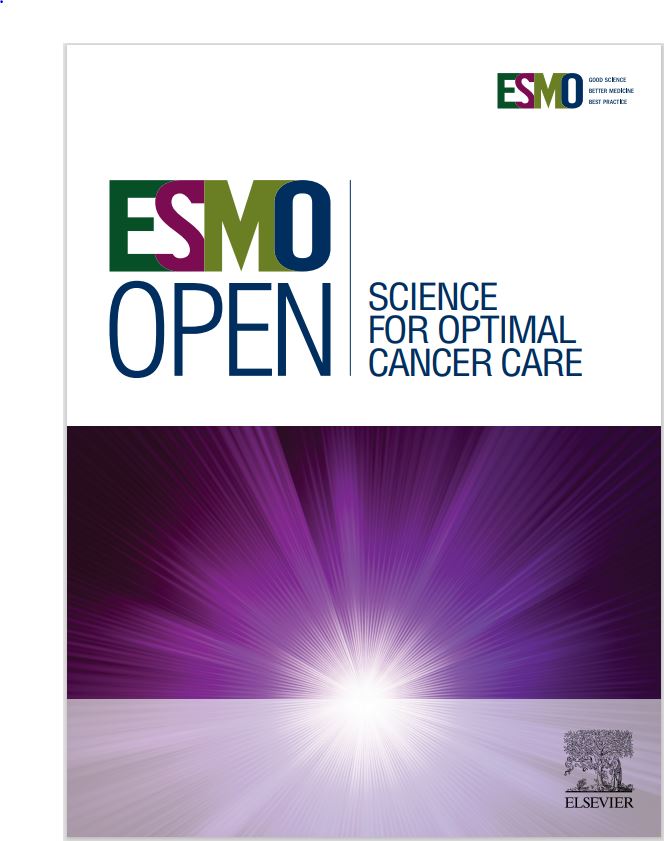ESMO复原力工作组关于管理社会心理风险、优化幸福感和减少肿瘤科职业倦怠的建议。
IF 7.1
2区 医学
Q1 ONCOLOGY
引用次数: 0
摘要
背景:医护专业人员(HCPs)的职业倦怠源于工作中的社会心理风险。如果不加以解决,职业倦怠可能会导致慢性健康问题、人员流动增加、工作时间减少、旷工和提前从临床实践中退休,从而影响对患者的护理。欧洲肿瘤内科学会(ESMO)复原力工作组(RTF)成立于 2019 年 12 月,旨在为全球肿瘤科从业人员的福祉提供支持。这份ESMO RTF立场文件旨在提供一套建议,以优化肿瘤学领域的幸福感并减轻职业倦怠,帮助个人和机构保持提供最佳的癌症护理:设计:由不同国家的跨专业专家组成的小组根据之前报告的三项ESMO RTF调查的主要结果制定了建议:结果:在肿瘤学领域发现了一些反复出现的与工作相关的社会心理风险,尤其是对工作量和专业发展的担忧。调查强调,需要灵活的工作模式、持续利用虚拟资源、福利资源以及为高危人群提供有针对性的支持,这些都是保障高级专业人员健康和防止职业倦怠的关键因素。共提出了 11 项建议,涉及三个优先主题:(i) 信息和培训;(ii) 资源;(iii) 积极行动和宣传:结论:优化肿瘤学从业人员的身心健康对于在全球范围内为患者提供高质量、可持续的医疗服务至关重要。ESMO RTF 将继续履行其使命,并推出多项倡议和活动,以支持这些建议的实施。本文章由计算机程序翻译,如有差异,请以英文原文为准。
ESMO Resilience Task Force recommendations to manage psychosocial risks, optimise well-being, and reduce burnout in oncology
Background
Burnout in health care professionals (HCPs) results from exposure to psychosocial risks at work. Left unaddressed, burnout can lead to chronic health problems, increased staff turnover, reduced work hours, absenteeism, and early retirement from clinical practice, thus impacting patient care. The European Society for Medical Oncology (ESMO) Resilience Task Force (RTF) was established in December 2019 to support the well-being of oncology HCPs globally. This ESMO RTF position paper aims to provide a set of recommendations to optimise well-being and mitigate burnout in oncology, and to help individuals and institutions maintain the delivery of optimal cancer care.
Design
Recommendations were developed by a diverse multinational panel of interprofessional experts based on the key findings from three previously reported ESMO RTF surveys.
Results
Several recurrent work-related psychosocial risks in oncology were identified; in particular, concerns about workload and professional development. The need for flexible work patterns, continued use of virtual resources, well-being resources, and targeted support for at-risk groups were highlighted as key considerations to safeguard HCPs’ health and prevent burnout. In total, 11 recommendations relating to three priority themes were developed: (i) information and training; (ii) resources; (iii) activism and advocacy.
Conclusion
Optimising the well-being of oncology HCPs is essential for the provision of high-quality, sustainable care for patients globally. The ESMO RTF will continue its mission and is rolling out several initiatives and activities to support the implementation of these recommendations.
求助全文
通过发布文献求助,成功后即可免费获取论文全文。
去求助
来源期刊

ESMO Open
Medicine-Oncology
CiteScore
11.70
自引率
2.70%
发文量
255
审稿时长
10 weeks
期刊介绍:
ESMO Open is the online-only, open access journal of the European Society for Medical Oncology (ESMO). It is a peer-reviewed publication dedicated to sharing high-quality medical research and educational materials from various fields of oncology. The journal specifically focuses on showcasing innovative clinical and translational cancer research.
ESMO Open aims to publish a wide range of research articles covering all aspects of oncology, including experimental studies, translational research, diagnostic advancements, and therapeutic approaches. The content of the journal includes original research articles, insightful reviews, thought-provoking editorials, and correspondence. Moreover, the journal warmly welcomes the submission of phase I trials and meta-analyses. It also showcases reviews from significant ESMO conferences and meetings, as well as publishes important position statements on behalf of ESMO.
Overall, ESMO Open offers a platform for scientists, clinicians, and researchers in the field of oncology to share their valuable insights and contribute to advancing the understanding and treatment of cancer. The journal serves as a source of up-to-date information and fosters collaboration within the oncology community.
 求助内容:
求助内容: 应助结果提醒方式:
应助结果提醒方式:


